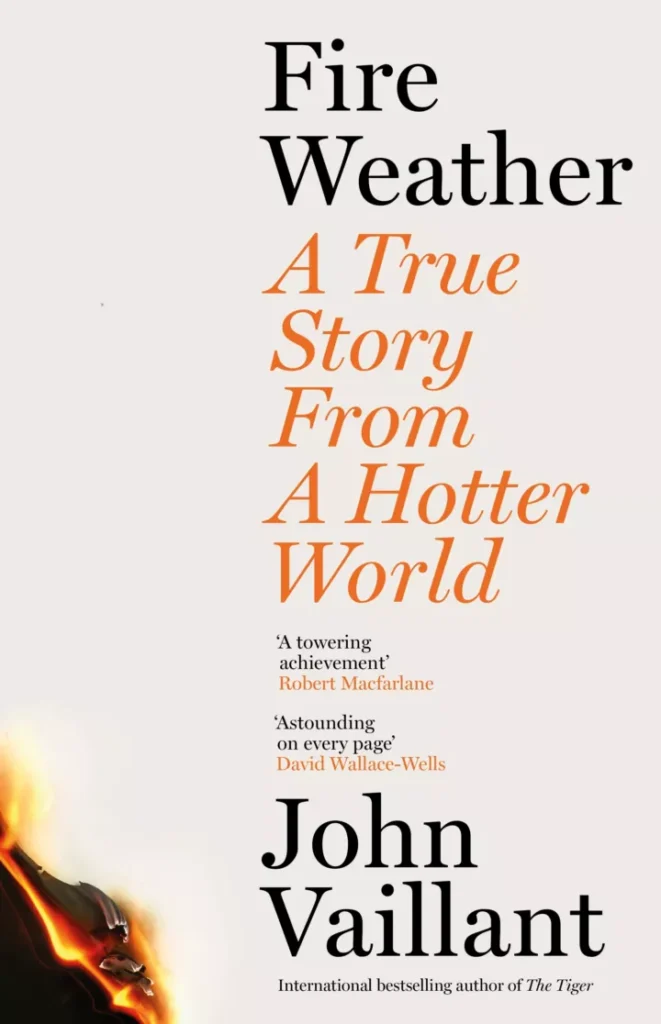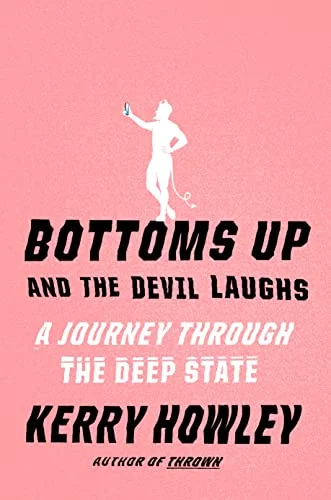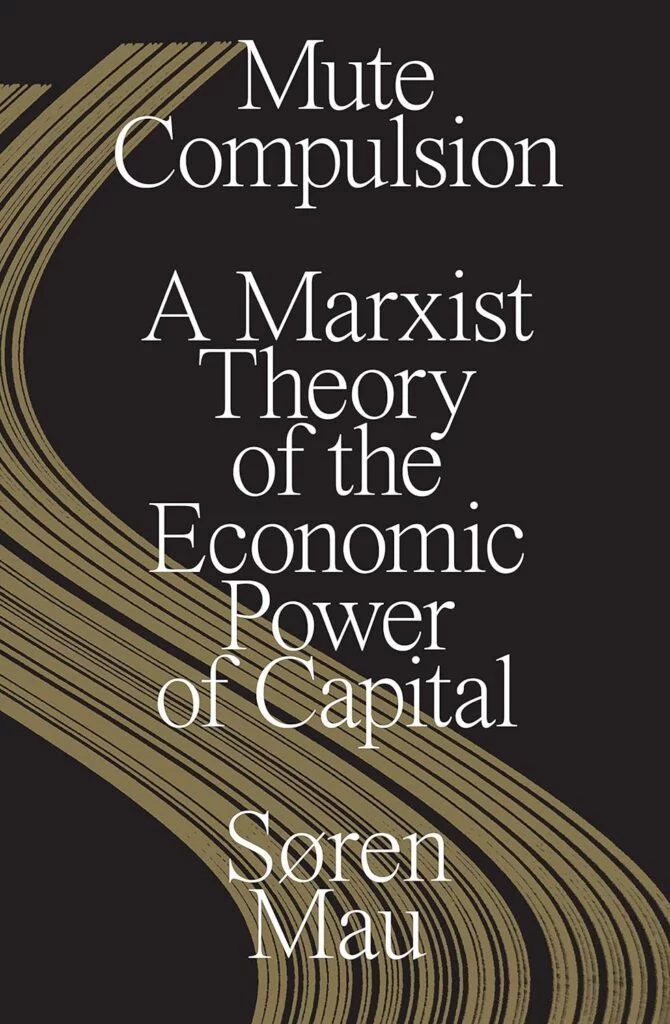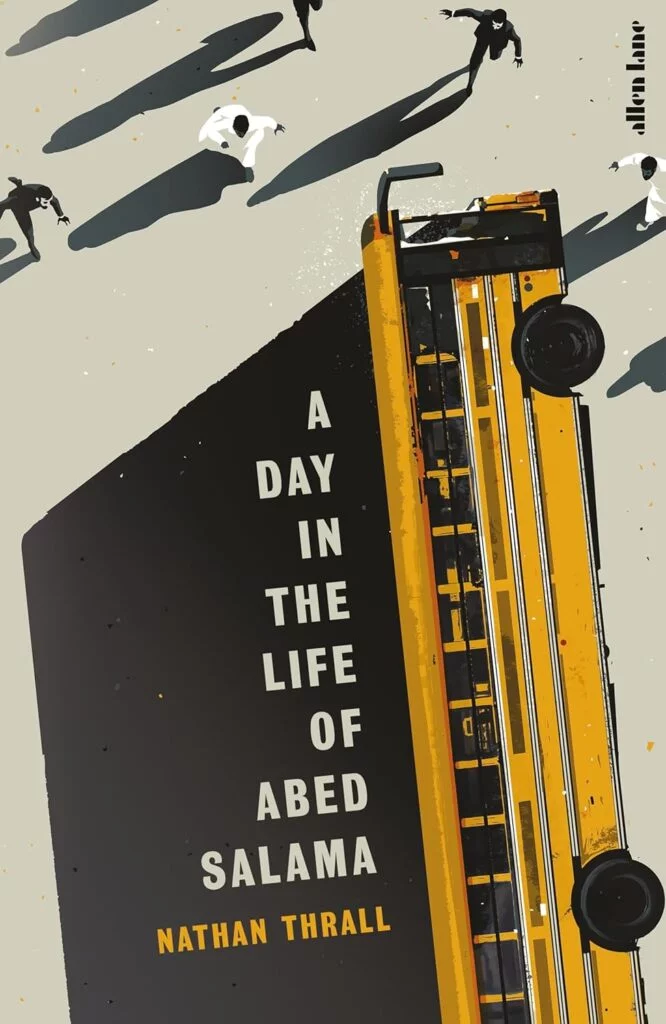Fire Weather: A true story from a hotter world @JohnVaillant

In May 2016, Fort McMurray, the beating heart of Canada’s oil sands (an environmental disaster) industry, was engulfed by an epic wildfire. The multi-billion-dollar disaster turned neighbourhoods into infernos, melted cars in driveways, and forced the evacuation of 88,000 residents in a single afternoon. Through the lens of this catastrophic blaze, John Vaillant sounds the alarm that such extreme wildfires are not freak events but our new normal in an overheating world.
For hundreds of thousands of years, humanity has harnessed fire for light, heat, and to power civilization itself. Yet this capricious ally has always threatened to rage out of control, with devastating consequences. As climate change accelerates, Vaillant chronicles how wildfires of unimaginable fury will (have already) become more frequent events, ravaging communities and pushing our emergency response capabilities to the breaking point. The recent failure at the COP28 climate summit to call for a phase-out of fossil fuels is “devastating” and “dangerous,” scientists warn, given the urgent need to curb emissions and slow the impacts of global warming. The age of megafires is upon us, and we must face hard truths about living on a hotter, drier, tinderbox planet. This book is a climate science primer, an edge-of-your-seat thriller, and an urgent warning to humanity all in one.
Bottoms Up and the Devil Laughs: A journey through the deep state @KerryHowley

Kerry Howley’s narrative cleverly uses the story of Reality Winner (this book must be read alongside Tina Satter‘s film Reality which also came out this year) as a lens to examine existential questions around privacy, the permanence of online information, and the complex relationship between personal identity and one’s digital footprint in the modern age. Through colourful storytelling and insightful cultural analysis, Howley takes us on an unsettling yet enlightening free fall into the deeper implications of living in a world where everything is recorded and nothing feels sacred anymore. With probing intellect and stylish prose, Howley stands out as one of our most insightful contemporary writers.
The Undertow: Scenes from a slow civil war @JeffSharlet

Jeff Sharlet’s prescient The Undertow examines the social and political currents that enabled Trump’s rise and the threat he poses to democracy, tracing threads of religious zealotry, gender resentment, and racial grievance binding Trump to his loyal followers in a mutually reinforcing relationship reminiscent of a political religion. The 2023 persistence of Trumpian conspiracy theories and Christian right radicalisation indicates Sharlet correctly warned of a rhetorical civil war turning real. Yet Sharlet offers hope grounded in America’s tradition of freedom songs (an amazing piece of writing about Harry Belafonte) and democratic struggle, essential context as Trump is likely to be the GOP presidential candidate once again. As we enter an election year, engaged readers should heed Sharlet’s examination of how we arrived at this precarious precipice (the Trumpocene), so we can write a different ending to this story.
Mute Compulsion: A Marxist theory of the economic power of capital @sorenmau

Mau offers a novel Marxist theory explaining how despite recurring crises, capital tightens its grip on society by constantly reshaping conditions of social reproduction; this ambitious rethinking of Marxism tackles debates on value, crisis, biopower, logistics and metabolism to provide the best new reading of Marx in years and reinvigorate historical materialism today. True to the dialectical nature of Marxist inquiry, Mau leads readers through a complex web of interrelated concepts, rewarding those willing to untangle the connections with original theoretical insights.
A Day in the Life of Abed Salama @NathanThrall

Abed Salama’s desperate search for his five-year-old son Milad after a horrific bus crash (in 2012) highlights the maze of barriers Palestinians face living in East Jerusalem. As 2023 ends with escalating violence for the region, this poignant story still resonates as a human portrait of the tragedy and complexity of life under occupation. His odyssey crossing checkpoints and jurisdictions controlled by the Israeli authorities shows the toll and bureaucratic control of the occupation on the oppressed. Palestinians like Abed find themselves caught in a web of permits, authorisations, and IDs issued by the Israeli government that restrict their ability to travel, work, and access health care. Even in life and death emergencies, these bureaucratic obstacles exist. Though sparked by a tragic accident, the book delivers a poignant, humanising and layered exploration of living amid the enduring struggle over this contested land. More than just portraying present obstacles, Thrall elaborates dreams, setbacks, loves and losses that provide deeper understanding.
Art (54) Book Review (127) Books (114) Capitalism (68) China (81) Climate Emergency (99) Conservative Government (90) Conservative Party (45) COVID-19 (45) EcoSocialism (60) Elections (83) Europe (46) Fascism (62) Film (49) Film Review (68) France (72) Gaza (62) Imperialism (100) Israel (129) Italy (46) Keir Starmer (56) Labour Party (115) Long Read (42) Marxism (50) Marxist Theory (48) Palestine (179) pandemic (78) Protest (154) Russia (341) Solidarity (146) Statement (49) Trade Unionism (142) Ukraine (349) United States of America (134) War (370)


Obviously the books chosen here are ones that have made an impression on Simon. That is fair enough and I don’t want to criticize his choice.
However I would like to add another book that I would encourage comrades to read: Demon Copperhead by Barbara Kingsolver.
I don’t want to discuss the plot though as the title reveals this is a reworking of the Charles Dickens’ novel David Copperfield, but set in the Appalachian mountain range in the eastern United States.
The book deals with two main issues, the attitudes of the dominant sections of US society to the impoverished working class of the Appalachians who are frequently dismissed as ‘hillbillies’ and treated with contempt. Kingsolver lives close to the setting of her book so it is unsurprising that she understands and empathizes with the workers who have seen their traditional industries close leaving many unemployed and impoverished.
The main concern of Kingsolver’s novel deals with how the poverty, despair and pain of the Appalachian working class have led to drug addiction on a massive scale. But this is not addiction caused by drug cartels, not even by the FBI
(who in the late 1960s and early 1970s distributed vast amounts of drugs in primarily Black areas to undermine the ability of the Black Panthers and other organizations to mobilize people to fight injustice).
This epidemic (which in reality affects the whole of the United States not just the Appalachians) is the result of the drug companies, Big Pharma, deliberately promoting opioids such as Oxycontin and the willingness of doctors to prescribe them. The drug companies and doctors both cynically claimed that these opiates (and the even more dangerous non-opiod based Fentonyl) were not addictive.
The human suffering and misery, the tearing apart of relationships all result from this perfectly legal promotion and prescription of highly addictive substances.
Barbara Kingsolver, who won the Pulitzer Prize for Demon Copperhead among many other literary honours,is an unashamedly political author who has dealt with:
US imperialism – The Poisonwood Bible;
Ecological Issues – Prodigal Summer; Flight Behaviour;
McCarthyism – The Lacuna;
Intolerance – Unsheltered.
This is by no means a complete list of her works and all the books above deal with far more than the issues mentioned above.